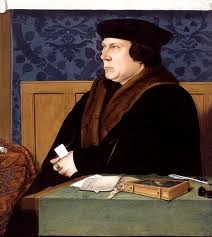In last Saturday’s Guardian, Rachel Cooke had an interesting article and/interview with Adam Thorpe. I read Ulverton about a year after it first came out, when it started to get some publicity, and was very impressed with it. Firstly there are very few worthwhile novels about the English Civil War (though lots about other civil wars). Secondly, and more importantly, it was and is a very fine book, telling the story of an English village through the ages, from the Civil War to the present day. As I said in my review it is a loving portrait of the rural proletariat in England over a long period and the changes and misfortunes that they have had to suffer and is in the tradition of English rural writers, of which, sadly, there are fewer and fewer. Cooke does mention a few, though none of them is a novelist. As Cooke points out in the article, it has now become a modern classic but his subsequent novels have not fared nearly so well. Both Cooke and Thorpe are baffled by this. Cooke states They are inevitably superb … and always well-reviewed, and yet you look for his name in vain on Booker and bestseller lists alike. To me, this is as baffling as it is unfair, and I wonder how he accounts for it. Thorpe himself has no explanation and comments One can hardly say I’ve been unambitious. Cooke picks up on this and feels that, as each book is different, this may account for his lack of sales. He’s uncategorisable, and perhaps such unpredictability is simply too much for some readers.
But then she inadvertently reveals the real problem, by comparing Thorpe to Hilary Mantel. He goes on to compare, at least as regards sales, Mantel’s Thomas Cromwell novels to his own Hodd. Hodd, as you can see from the review in the link, is a version of the Robin Hood tale. Thorpe tells a very clever tale, demystifying Robin Hood, and, to use his own words, being fairly ambitious with his use of comments and the various characters who are similar to the characters that we know from the traditional Robin Hood legend. But, and this is the key, here, as with Ulverton and Pieces of Light, and even in Still, where he uses a stream of consciousness approach, frankly we not only do not identify with the main character, as I said in my review of Pieces of Light, we tend to find his main characters irritating or just not very sympathetic.

Compare this approach to that of Hilary Mantel. Thomas Cromwell has not fared well in history books. He was something of the Dick Cheney of his day – devious, ruthless, committed to an ideology that was not one shared by most people (in Cromwell’s case, that of whatever it was that Henry VIII wanted), serving an unpopular master and not averse to torturing his enemies when he felt it appropriate. He was responsible for the deaths of Thomas More, later canonised, and Anne Boleyn, both of whom fared much better in the history books. Yet, when we read Wolf Hall and Bring up the Bodies, we cannot help but feel a certain identification with Cromwell. Mantel is not interested, as Thorpe seems to be, in telling a faux history, as he does in Hodd. She is not a historian but a novelist and well aware of that. As a result she is telling the story of her character, based on a historical character, of course, but very much her own creation as well. As one of our foremost novelists, if not the foremost novelist writing in Britain today, she does it very, very well. We know that Cromwell is supporting the evil Henry VIII. We know that he has his political opponents tortured. We know that he is going to send Thomas More and Anne Boleyn to the scaffold. And, yet, we cannot but feel a grudging admiration and sympathy for him, as though his problems were ours and his course of action one we would feel bound to take or, at least, strongly consider. This is why Hilary Mantel has twice won the Booker Prize and may well win it again and why she is such a superb novelist.
Yes, Thorpe has been ambitious, not too ambitious as he and Cooke imply, as that is not necessarily a drawback. Mantel has written other novels which are not about famous historical characters and done them very well too. Think of Beyond Black where she has us thinking that spiritualists may not be the slightly deranged people that many of her readers would normally think. Thorpe, meanwhile, produces a succession of characters who, frankly, are distinctly less than appealing and he makes little attempt to have us identify with them. If, as he claims, he is a friend of Hilary Mantel, he could perhaps read her books more closely and learn from them. He is clearly a writer of talent and imagination and it would be nice if he could produce another great book.


